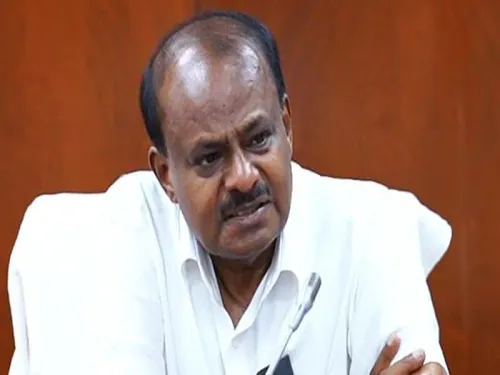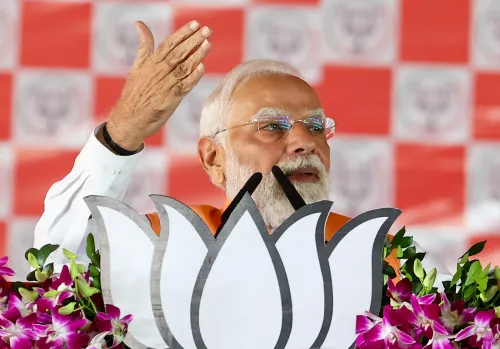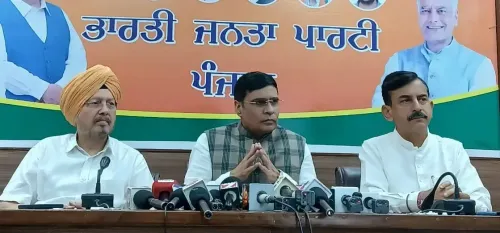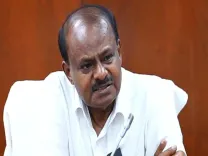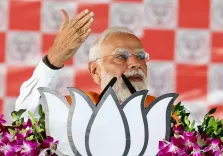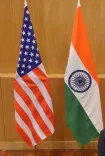Why did EAM Jaishankar dismiss the Opposition’s ‘two-front warning’ in the context of the sixty-year Sino-Pak relationship?

Synopsis
Key Takeaways
- EAM Jaishankar highlights the historical context of the Sino-Pak alliance.
- India's strategic responses include Operation Sindoor.
- The Indus Waters Treaty has been suspended as part of India's counteractions.
- International support for India's defense is growing.
- Criticism of past governmental policies emphasizes the need for a proactive approach.
New Delhi, July 28 (NationPress) In a sharp retort to the Opposition Leader during the Lok Sabha session on Monday, External Affairs Minister (EAM) S Jaishankar presented a historically grounded and policy-oriented defense of Operation Sindoor, elucidating the long-standing strategic alliance between Pakistan and China and its lasting effects on India's national security.
Revisiting the two-front narrative, EAM Jaishankar emphasized that by reflecting on the military, economic, and diplomatic alignment between Islamabad and Beijing over the past sixty years, he intended to redefine the “two-front threat” as a fundamental reality that Indian diplomacy and defense must now confront with determination.
The Minister’s statements were geared not just towards countering immediate Parliamentary criticism, but also towards presenting a comprehensive timeline of geopolitical alignment between India’s two major adversaries—a convergence that, he asserted, predates the current government and requires sober analysis beyond mere political divides.
“The individual who mentioned the (two-front threat) must have overlooked their history lessons,” EAM Jaishankar humorously remarked, before tracing the history from Pakistan’s transfer of the Shaksgam Valley to China in 1963, to Bhutto’s initiation of nuclear collaboration in 1976, and significant milestones including the transfer of Gwadar in 2013 and the formal inauguration of the China-Pakistan Economic Corridor thereafter.
“We are receiving warnings today,” he pointedly remarked, “but this cooperation has been ongoing for 60 years.”
The timeline he referred to included the 1966 agreement on the Karakoram Highway, its completion two decades later, and successive Chinese arms transfers and infrastructure investments—evidence, in Jaishankar's perspective, of a long-term strategy that warrants more than just rhetorical concern.
Shifting focus to Operation Sindoor, External Affairs Minister Jaishankar asserted that the retaliatory operations in Bahawalpur and Muridke were both carefully planned militarily and diplomatically aligned as part of a broader campaign to unveil Pakistan’s duplicity on global platforms.
“Who among you thought these terrorist hideouts would be dismantled in this manner?” EAM Jaishankar challenged, framing the operation not merely as a military action but as a declaration of renewed strategic resolve.
India's response also involved suspending the Indus Waters Treaty, closing the Attari border, canceling visas for Pakistani nationals, and expelling Islamabad’s mission personnel—actions that signified a transition from symbolic protests to tangible disruptions.
In one of the speech’s sharpest critiques, EAM Jaishankar condemned the opposition’s “habitual equivocation,” referencing Rajiv Gandhi’s visits to both China and Pakistan during the height of Sino-Pak nuclear cooperation in the 1980s.
He further pointed out that previous administrations facilitated Chinese technology in India’s telecom sector, contrasting it with the Modi government’s emphasis on indigenous 3G and 4G frameworks. This administration has focused on Made in India technology, which others have allowed from China, he stated.
EAM Jaishankar also highlighted robust international support for India’s actions following the Pahalgam incident—from the US labeling The Resistance Front as a terrorist entity to affirmations from Germany, Russia, and multilateral platforms that upheld India’s right to self-defense.
“The world recognizes our actions and believes that India has responded responsibly,” he noted, suggesting a shift in the global narrative that India has successfully achieved through assertive diplomacy.
He reiterated India’s unwavering stance on cross-border terrorism and emphasized the country’s growing diplomatic clout on the international stage following recent attacks. Referring to the May 7 attack in Pahalgam—widely linked to Pakistan-backed operatives—the minister stated that India’s position had been “very, very clear” in its operational response, dismissing nuclear intimidation and asserting that any dialogue must proceed through formal military channels such as the Director-General of Military Operations.
“The world observes the situation and feels that India has responded appropriately,” EAM Jaishankar asserted, citing widespread international condemnation.
He referenced collective denunciations from multilateral organizations, including the Quad and BRICS, underscoring alignment on the issue of cross-border terrorism.
“China, Russia, Iran, Egypt—all have condemned the attack, reinforcing our right to bring the perpetrators to justice,” the Minister stated.
He mentioned that the Indian Ocean Rim Association and individual leaders, such as Russian President Vladimir Putin, labeled the assault a “heinous crime without justification.”
The minister also highlighted the recent designation of The Resistance Front as a global terrorist organization, attributing this achievement to India's persistent diplomatic efforts.
“Our diplomatic initiatives have borne fruit—Tahawwur Rana is now in custody, and TRF has been designated as global terrorists,” he remarked.
In recounting his discussions with global leaders, including the German Foreign Minister, Jaishankar noted enthusiastic backing for India’s sovereign right to defend itself.
His response to the Opposition member shifted to a critique of opposition positions, particularly concerning China.
The minister questioned the interactions of opposition figures with the Chinese Ambassador amid border tensions and criticized prior trade and technology concessions made under the Congress-led administration.
In conclusion, the Minister reflected historically, referencing past dialogues between India and Pakistan following the 26/11 attacks and the now-debunked idea of moral equivalence between victims and perpetrators of terror.
He cautioned against political tendencies that obscure the lines of national interest in the face of strategic threats.


